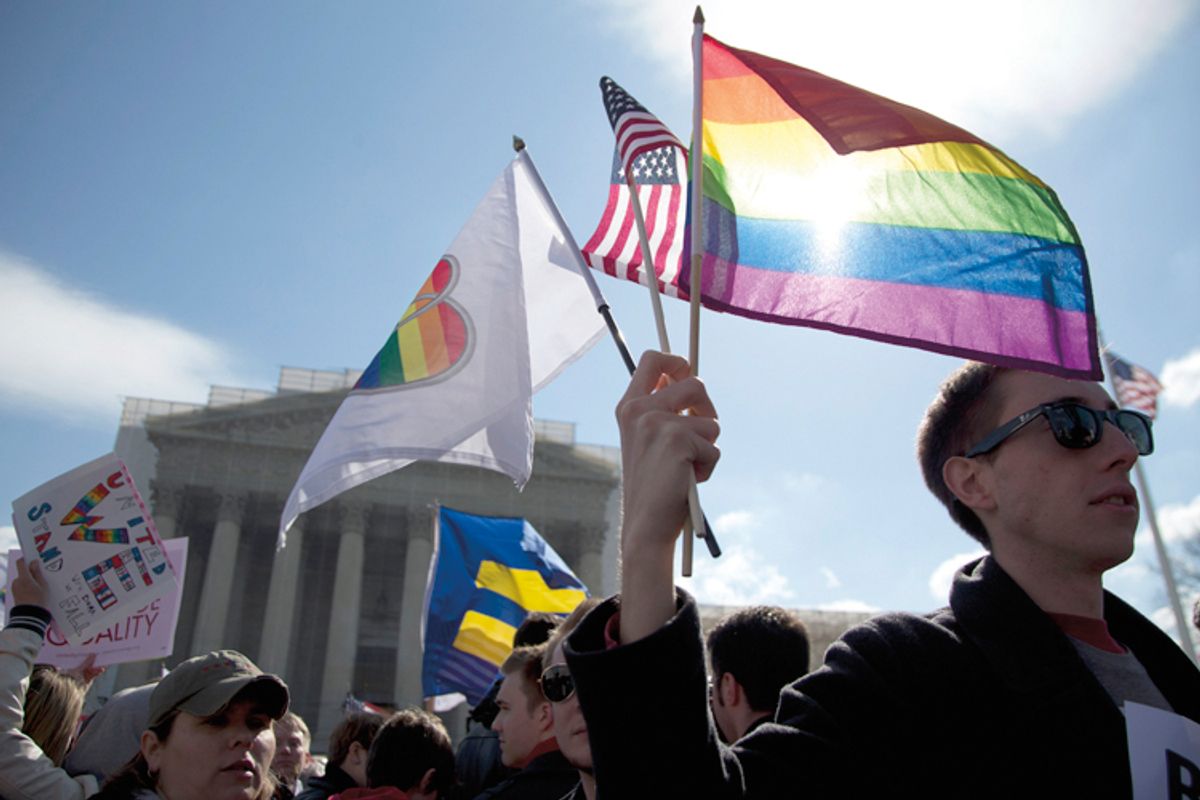On Wednesday, a federal judge ruled that Louisiana's ban on same-sex marriage is constitutional, contradicting a number of recent rulings in favor of marriage equality. The ruling, handed down by U.S. District Court Judge Martin Feldman, is the first federal ruling to uphold a state ban on same-sex marriage since last year, when the Supreme Court handed down a historic ruling that struck down a law limiting marriage to opposite-sex couples.
Feldman, who noted his break with an increasing number of judges who ruled in favor of marriage equality, dismissed the Supreme Court's declaration that marriage is a fundamental right, while also arguing against judicial input with regard to marriage rights:
Many states have democratically chosen to recognize same-sex marriage. But until recent years, it had no place at all in this nation's history and tradition. Public attitude might be becoming more diverse, but any right to same-sex marriage is not yet so entrenched as to be fundamental.
The judge also went on to support the state's supposed reasons for enforcing the ban, finding that Louisiana offered "a credible, and convincing, rational basis" for denying marriage equality:
This Court is persuaded that Louisiana has a legitimate interest... whether obsolete in the opinion of some, or not, in the opinion of others...in linking children to an intact family formed by their two biological parents, as specifically underscored by Justice Kennedy in Windsor.
The case, Robicheaux v. Caldwell, could be taken to the Fifth Circuit Court of Appeals, which has moved more slowly than other circuits in ruling on same-sex marriage. Since last year's historic SCOTUS ruling in United States v. Windsor, 21 consecutive federal court decisions have found bans on same-sex marriage unconstitutional -- that is, until Louisiana's ban was upheld.



Shares